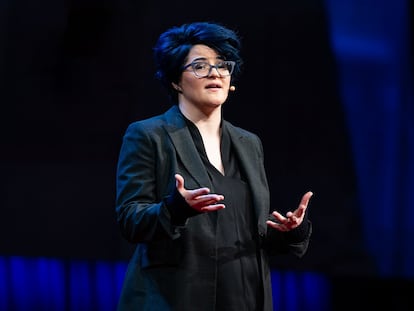Cracking the code of effective couples communication: The key lies in how you argue
Some people choose silence to avoid trouble, but dodging tough talks can make things worse and lead to misunderstandings

“We’ve been together for 10 years and we’ve never had a single argument!” While this may seem positive at first glance, it might not always be a good thing. In relationships, there is an idealized expectation that everything should flow effortlessly like the honeymoon phase – filled with laughter, excitement and romantic strolls. However, as time passes and living together becomes a reality, conflicts and disagreements inevitably arise. A couple who says they never argue might make you wonder if they’ve genuinely never disagreed or if one avoids conflict to keep the peace. This avoidance could actually worsen conflicts instead of resolving them.
“Most of the problems that I see in consultations come from a couple’s inability to correctly manage the inevitable conflicts that happen in life, and the only healthy tool we have is our ability to argue. Learning to manage conflicts means learning to communicate effectively,” said psychologist Juan Muñoz. Ineffective communication often stems from misunderstandings that lead to arguments. Disputes arise when one person believes they said something, while the other is sure they did not. Phrases like “you never listen to me” or “it’s always the same with you” often come up. Arguing itself isn’t the issue — it can actually help iron out relationship issues and strengthen bonds. The key lies in how you argue.
Avoiding uncomfortable conversations isn’t an effective conflict resolution strategy. Instead, address them through clear communication. An important first step to improving mutual understanding is to identify common mistakes. David Gómez, a psychologist who specializes in managing emotions in relationships, explains some of the mistakes he often sees. “Usually, we tend to engage with the other person at the wrong moment. We express ourselves from a place of hurt by blaming, which leads to polarization. The ‘you versus me’ approach has never been successful for any couple. Anger often dominates such situations, influencing our words. Instead, steer the conversation and conflict in a constructive direction. The main mistake is pushing your viewpoint without considering the other person’s values, desires and opinions, which might differ from yours.”

What’s better: keeping quiet or saying something negative?
When faced with a difficult conversation, some people choose silence to avoid the hurt of an argument. However, this silence may lead to pent-up emotions that eventually burst out, affecting the way a couple communicates. “This mirrors how many people communicate: they explode, feel regret, go silent, then repeat. It can feel like an endless cycle, but it’s an area for growth and improvement,” said Muñoz. To break this cycle, start by understanding that if something matters to you, it’s important to communicate it.
For people with low self-esteem, expressing conflicting views can be daunting due to feelings of insecurity or fear of rejection. In these cases, according to Gómez, a breaking point is eventually reached, or the person becomes overly accepting and submissive. “Imagine the consequences in an abusive relationship,” he said.
When dealing with tough talks, fear of miscommunication is common. Remember, mistakes happen — it’s alright to be critical yet compassionate. Learn from errors, accept them, and apologize when needed. “Making mistakes is part of the process of learning to communicate effectively,” said Muñoz.
Keys to better communication
Muñoz, who wrote a book about how arguing is healthy if you know how, suggests better communication begins with self-awareness. Manage your emotions, thoughts and boundaries. Avoid fixating on your own experience as the ultimate truth. “Recognize that everyone’s view of reality is unique and equally valid, even if they don’t align with our own,” he said. “Keep it simple. Before sharing something important, jot down all your thoughts to make sure nothing is missed.”

Gómez emphasizes the importance of choosing the right time to have a difficult conversation. “Wait until you feel calm instead of reacting in the heat of the moment. Also, listening to your partner with empathy means seeking to understand, and not responding with anger.”
Heraclitus, one of the pioneers of dialectics, held that contradiction is not a hindrance but a source of energy. Plato, on the other hand, crafted his works as dialogues interwoven with probing questions about conflicting viewpoints. These eminent Greek philosophers agreed that dialogue enhances one’s capacity for critical thinking. But no one said it was easy. “To learn how to communicate, you have to communicate. And to get better at arguing, you have to argue. So, keep at it until you’ve got it down pat,” said Muñoz.
Sign up for our weekly newsletter to get more English-language news coverage from EL PAÍS USA Edition









































